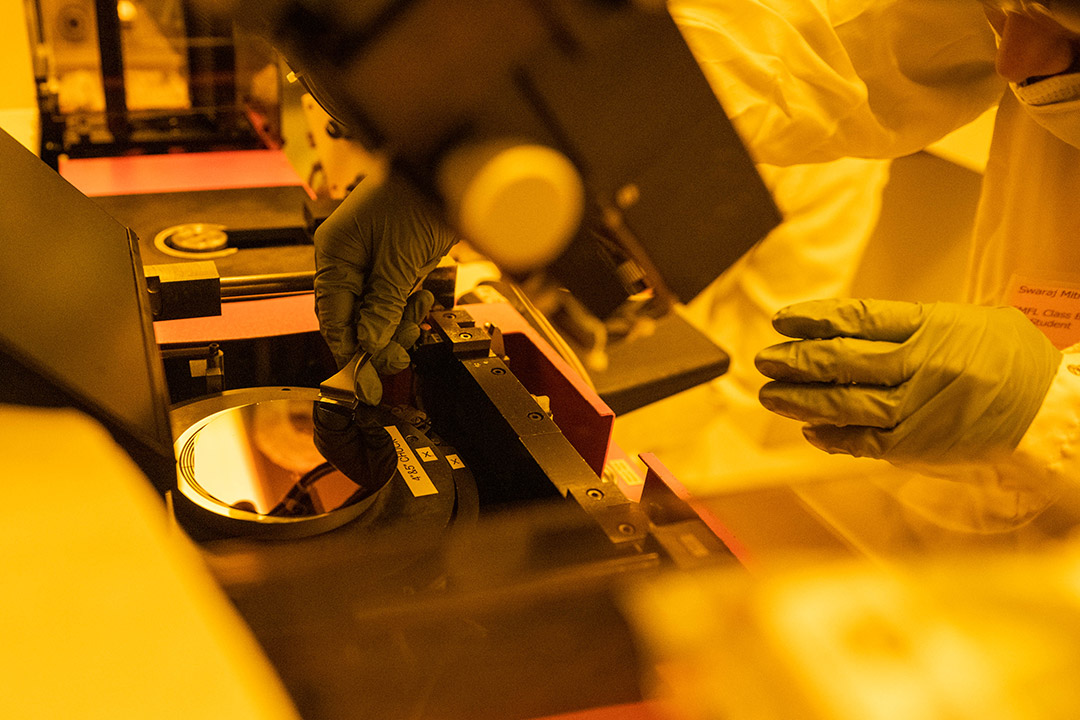RIT, partners awarded $40 million to boost the semiconductor industry across the region and nation
NY SMART-I Corridor Technology Hub aims to produce a quarter of all semiconductors made in the United States
The NY SMART-I Corridor Technology Hub will bring $40 million in federal funding to the region for semiconductor manufacturing, research, and education, U.S. Senate Majority Leader Charles E. Schumer announced July 2 in Rochester. The Buffalo-Rochester-Syracuse coalition will use the funding to further position the area as a global semiconductor superhighway, poised to meet the growing demands of the advanced manufacturing and semiconductor production in the United States.
“This is a monumental victory for the Buffalo-Rochester-Syracuse region as the nation's first major Tech Hub award,” Schumer said. “America's semiconductor future runs through the heart of upstate New York along the I-90 corridor.”
Joining Senator Schumer, other dignitaries, and consortium members on Tuesday were RIT Vice President for Research Ryne Raffaelle, RIT Associate Vice President for Government and Community Relations Maya Temperley, and RIT Assistant Vice President for Government and Community Relations Chris Harris.
RIT was one of the early partners to mobilize alongside other higher education institutions, community organizations, and businesses in the region to push for the NY SMART-I Corridor Tech Hub designation spanning the Buffalo, Rochester, and Syracuse regions.
“Now the real work begins as we move toward transforming our region into the leading semiconductor manufacturing hub in the United States,” said RIT President David Munson. “This designation underscores RIT’s shared mission to educate the next generation of students poised to shape the future of the semiconductor industry.”
Schumer, Congressman Joe Morelle, and coalition members are confident the Tech Hub will work to build a world-class semiconductor ecosystem across a range of focus areas, including equitable workforce development and talent placement, and research and commercialization pathways in partnership with leading academic institutions.
The funding that was awarded is part of the CHIPS and Science Act passed by Congress in 2022. In addition to the tri-city region, 11 other metro areas nationwide were awarded $464 million to support technology hubs, which have mostly been limited to large coastal cities.













